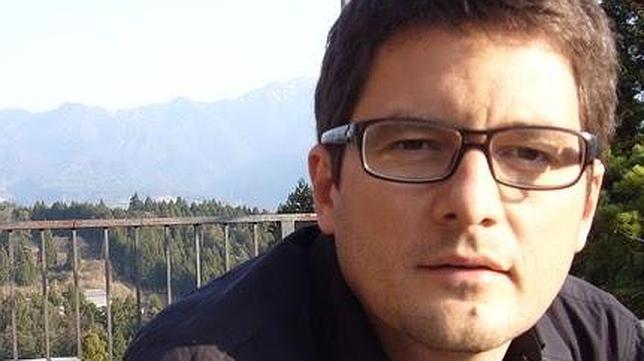Jochen Doppelhammer, CEO, of OTT player Yuilop is speaking on Day Three of the Broadband World Forum 2012, taking place on the 16 - 18 October 2012 at the RAI Exhibition and Convention Centre, Amsterdam. Ahead of the show we speak with him on the difficult relationship between OTT players and operators and what the future is for communication.
September 25, 2012


Jochen Doppelhammer, Ceo, Yuilop
Jochen Doppelhammer, CEO, of OTT player Yuilop is speaking on Day Three of the Broadband World Forum 2012, taking place on the 16 – 18 October 2012 at the RAI Exhibition and Convention Centre, Amsterdam. Ahead of the show we speak with him on the difficult relationship between OTT players and operators and what the future is for communication.
Today, the average telco faces challenges from many directions: the impact on CAPEX from deploying LTE and the costs of acquiring spectrum, lowering revenue streams, and managing a network under pressure from the data deluge pouring from tablets and. According to a recent poll on Telecoms.com, one of the key concerns that keeps the CTOs up at night is the threat from OTT— services that not only run on top of a network and occupy its resources, but eat into a carrier’s revenue by enabling customers to talk and text and chat, while bypassing the carriers own billable voice and SMS services.
Yuilop is one of these services that is threatening the telco status quo. It’s a start-up that is looking for nothing less than to revolutionise how we communicate. It touts itself as a one-stop communication hub and promises its customers freedom from phone bills thanks to free voice calls and SMS to 110 countries and it says it is working on adding more regions all the time.
It currently has an app for the iOS and Android platforms, but CEO Jochen Doppelhammer says that it is different to rivals such as Skype and Viber as it does not require other users to have the app installed. Once there is support for Yuilop in a territory users can communicate freely.
“I always use the example of when email started,” says Doppelhammer. “It was a closed community. If you had AOL you could only send between AOL, but today it doesn’t matter whether I have Gmail or Yahoo mail—it’s an open standard and they are all just gateways. Telco is the same—I have a mobile from Vodafone and you have one from T-Mobile and you just talk.” Doppelhammer thinks OTT services should work the same way-across devices or platforms.
It’s CEO and founder Doppelhammer has an extensive background in the mobile industry having set up online-only MVNO for KPN group first in Spain and France and then in the US and the Barcelona start-up has secured multiple rounds of venture funding. He launched Yuilop after trying to launch an MVNO in the US and seeing a gap in the market for an app that offers free communication.
“I had the idea to go to the next stage and go from low-cost to no-cost. I had the concept how to make the business model work and went back to Europe and talked to some vendors. Yuilop basically started with the basic objective to make communication free for everybody, to everybody.”
The model is based on advertising, which Yuilop uses to support its free platform. Users are required to build up “Energy” to be able to continue to continue to make free calls and texts – this involves responding to promotions within the app but also can be earned by simply using the service.
Doppelhammer says that he believes that we are entering, “the next stage of telco” where there is a separation between the services and the network on which they are running.” Yuilop is the embodiment of this as it enables anyone to talk to anyone on any mobile number as long as there is an internet connection.
The separation between the network and the services that run on top of it is the way forward according to Doppelhammer, where communication is just another service and is not bound to the network.
Surely this is the operator’s worst nightmare, leaving them to become the dreaded, ‘dumb pipe’. It’s not such a bad place to be he says, and he warns operators from biting off more than they can chew by trying to be more than they are.
“I think access is a very profitable business. If you adapt your structures and you want to be more than that, then you also need to adapt your service structure to be a service business. It’s very difficult to maintain this hybrid organisation. In the past, in the service part of the operation there were not really service people and in the end they were only selling tariffs. So if you want to be in services, you need to adapt.”
From his past on the operator side Doppelhammer understands that the relationship between OTTs and operators is—‘complicated’. He refers to it as a classic, love/hate relationship and that it’s in many ways similar to the relationship between the operators and the MVNOs.
“When I launched the MVNO in Spain the operators did not like it for good reason—because the market is better off if there is no MVNO. The moment one MVNO enters the complete market value will go down. But the regulator prefers [an MVNO to] enter and each operator will try to get the best MVNO with it, to be the strongest player in the new market. And OTT is very similar. Telcos don’t like us, as high voice and SMS revenues are going to disappear. The longer they don’t disappear, the better for them. And OTT players are harder to keep out then MVNO. MVNOs rely on the contract with the telco, but most OTTs are independent. They don’t need anything from the telco to enter the market, and that makes them more dynamic.”
The operators then can either chose to work with the OTTs or try to ignore them. The message to them is simple. “We’re here if you want it or not. We don’t have millions of users, and you can play with us, or not, it doesn’t matter. I don’t care, I’m here and I’m going to offer this service.”
Doppelhammer says Yuilop is working with operators who are open to working with OTTs and is negotiating with some to offer white label services in partnership with them to create new business opportunities. However, he warns that this is difficult for some operators to deal with the different levels of expectation when it comes to revenue generation.
“The biggest problem with them is their structure issues. Participating in the OTT space is completely different model. They are talking about €10 ARPU and we’re talking ARPU of about €2 per user, or even one—so completely different cost structures. It’s very hard for them to adapt.”
Of course the only way this model works is if it can be scaled up with a large user base and Doppelhammer admits that this is the biggest challenge facing it over the next couple of years. “Without big numbers this low-cost structure is not easy. We’re trying to change both worlds: the OTT world and the old telco world. That is a challenge and it requires a lot of talking and a lot of negotiation.”
Once it’s achieved though Doppelhammer hopes he will have made a large impact on the communications world. “User communication behaviour is changing drastically. The younger generation don’t do phone calls—they are only for very important events: emotional or emergency situations, because it’s a very intrusive and communication form. It’s synchronous, so you need to schedule a time when you call, etc, which is not that natural.”
What Doppelhammer wants to find out is what natural communication really looks like for users and believes asynchronous communication is the way forward. “A lot of new forms of communication are coming out which are asynchronous. Messaging for me doesn’t mean text: it can mean all types of things. So I think there is a lot of innovation happening with regard to the user experience.”
The focus, he believes, has to me less on the technology and more on the human side. “I don’t want to call numbers anymore; I want to communicate with people.”
The Broadband World Forum 2012 is taking place on the 16 – 18 October 2012 at the RAI Exhibition and Convention Centre, Amsterdam, the Netherlands. Click here now to register your interest.
Read more about:
DiscussionAbout the Author(s)
You May Also Like








.png?width=300&auto=webp&quality=80&disable=upscale)


_1.jpg?width=300&auto=webp&quality=80&disable=upscale)


.png?width=800&auto=webp&quality=80&disable=upscale)